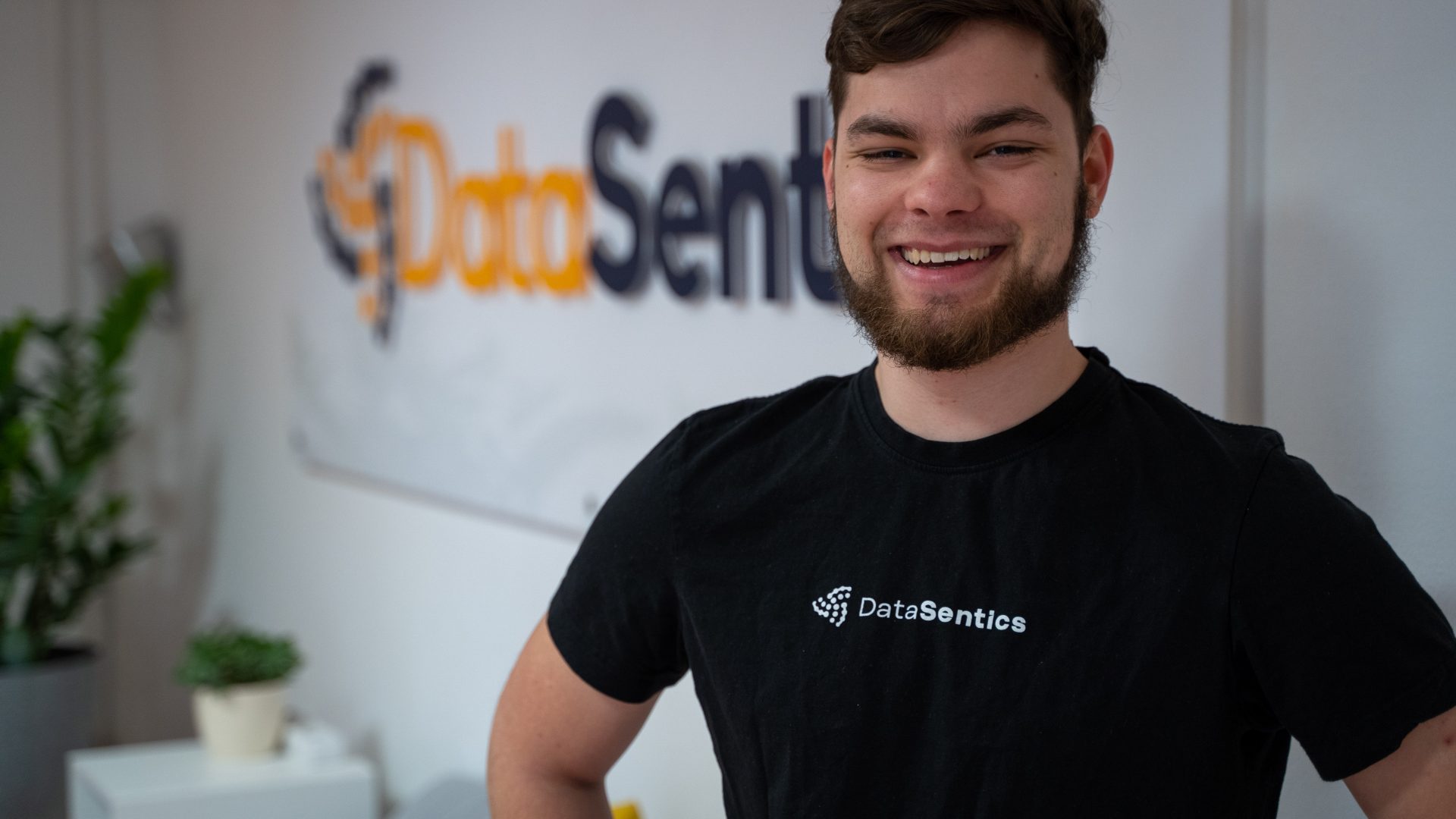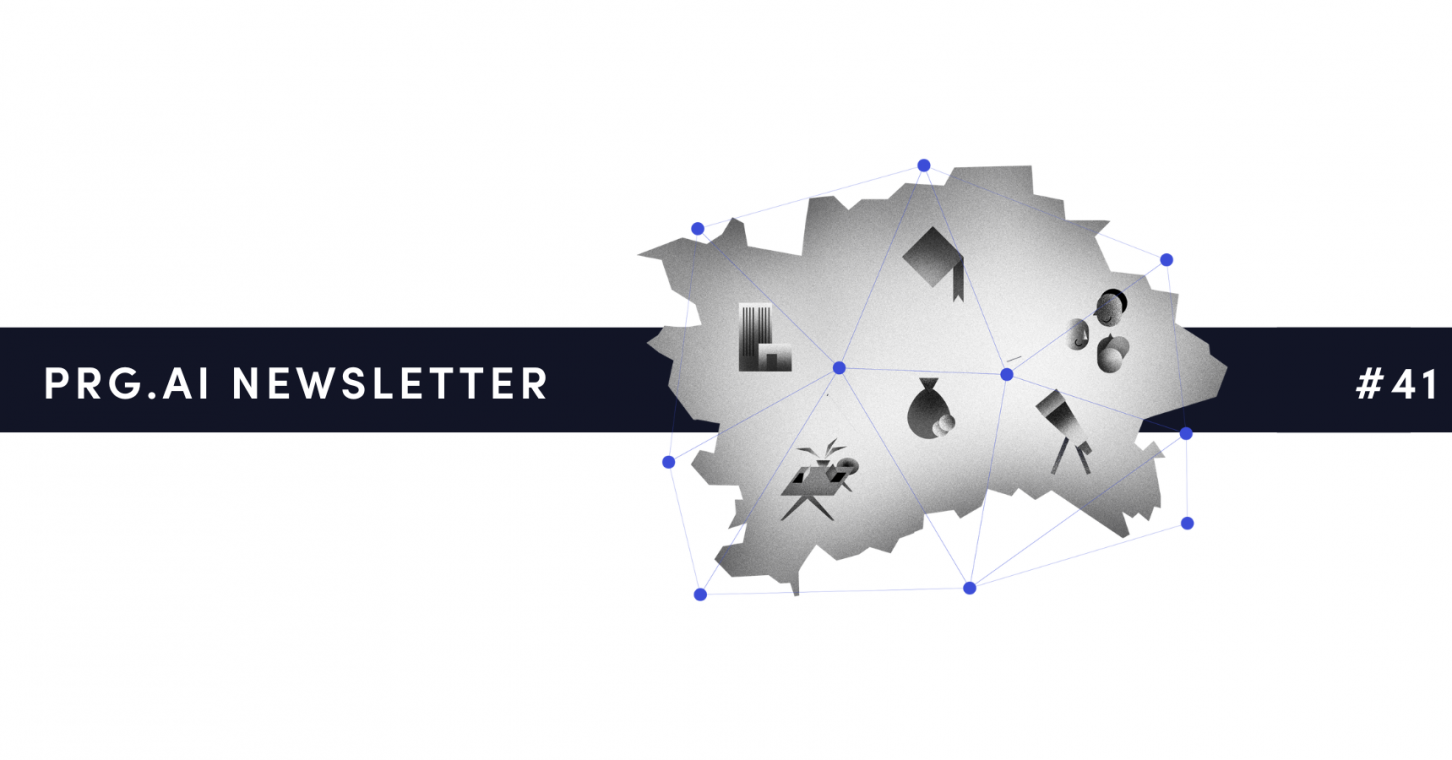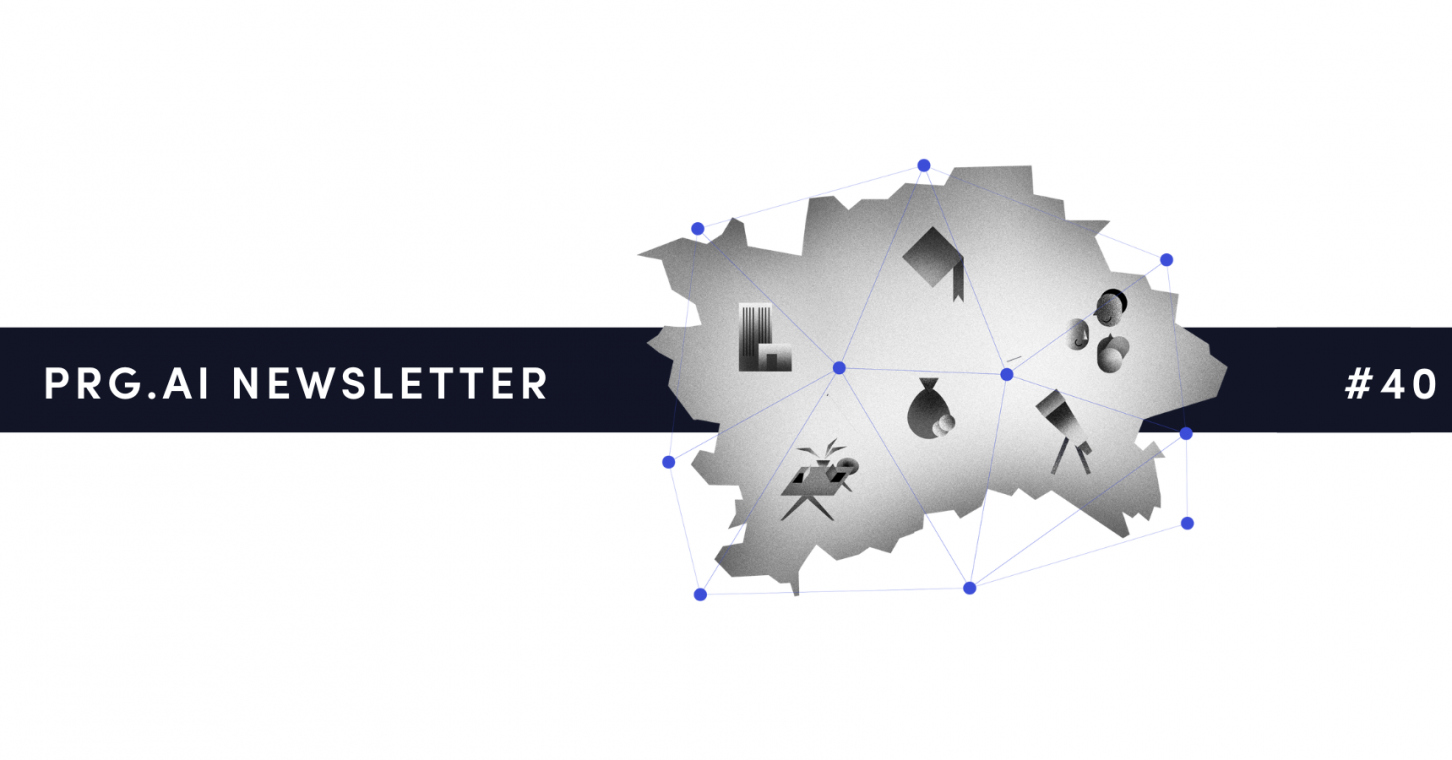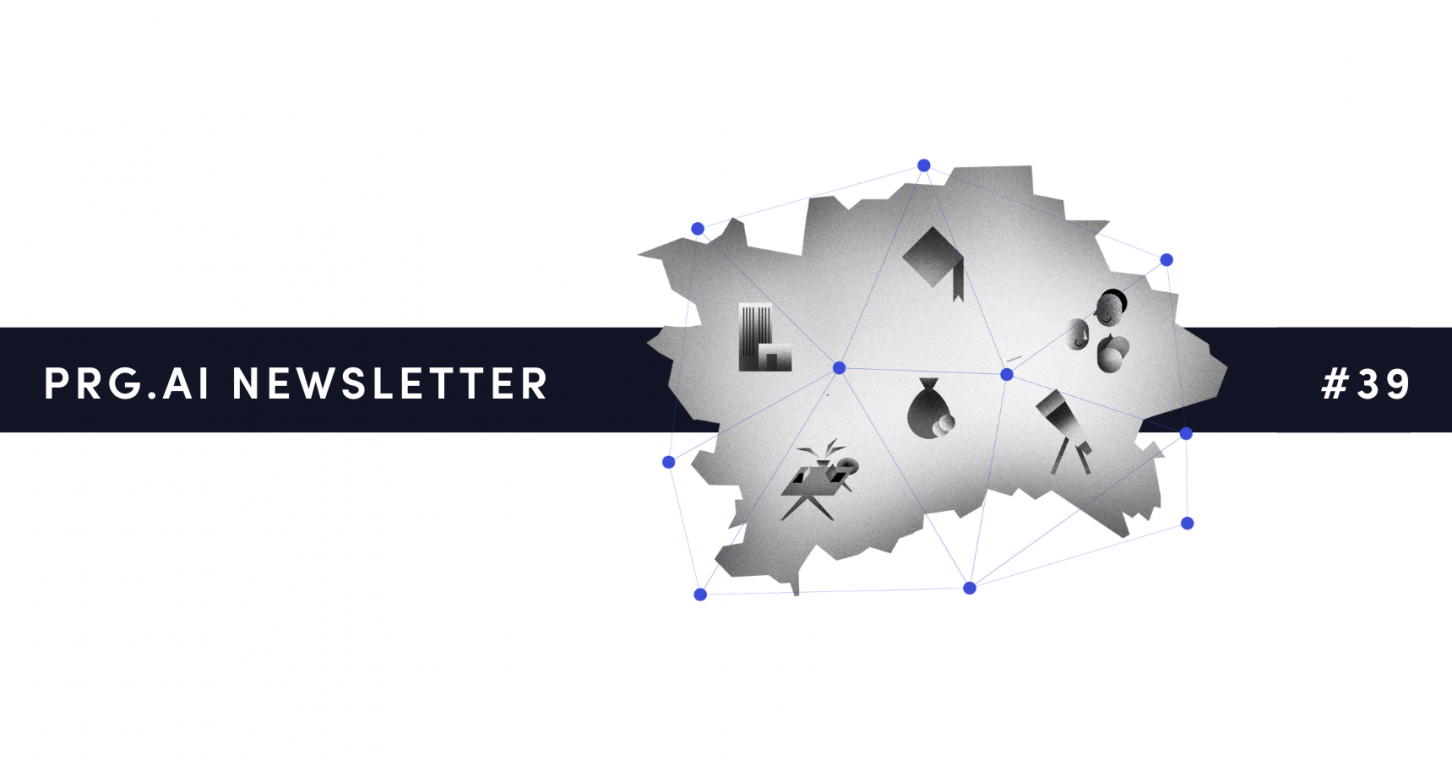Václav Maixner: prg.ai Minor exceeds common studies, the added value is priceless
Enriching knowledge, diverse community, meetups with key players of the Czech AI scene. Václav Maixner, a graduate of the prg.ai Minor programme and a data analyst at DataSentics, shares his experience in the following interview.

When you compare your perception and understanding of machine learning and artificial intelligence before and after prg.ai Minor, how has the programme advanced you?
Definitely a lot, especially on two levels. The first was the lectures that are part of prg.ai Minor. The second is the interaction with the world of artificial intelligence (AI) and machine learning in general – either during the various meetups or while participating in a hackathon with fellow Minor students.
The prg.ai Minor is organised into six thematic blocks: two are compulsory for each student, and from the remaining four the students get to choose two depending on their interest in the field of AI – for example, programming, natural language processing, or the humanities. How did you go about making your choice?
I would like to say that I chose purely based on interest, but since I was also following classes for my Master’s degree I also had to take into account how each class fit into my timetable. If I had more time, I would have taken at least one course from each thematic block – I still regret that I didn’t find time for NLP at MFF and Artificial Intelligence in Robotics at FEL. Apart from time constraints, I didn’t have to compromise when building my timetable, all the subjects were interesting to me.
In particular, Machine Learning with Dr. Straka gave me a great foundation in machine learning methods and taught me to solve various practical problems, Artificial Intelligence at FIT gave me a foundation in more traditional areas like planning and programming in Python.
Technology is now permeating all spheres of our lives, and the same goes for AI, which has been talked about a lot lately in the context of interdisciplinarity. Possible applications of AI range from law and ethics to education and healthcare. In what ways has prg.ai Minor broadened your horizons or shifted your perspective?
In this respect, the course that expanded my horizons the most was the Human AI Nexus course at FSV, which deals with general artificial intelligence and the implications that its emergence would have on society. During theoretical discussions about what would happen if such an artificial superintelligence were to emerge, we also got to discuss the dangers associated with ordinary algorithms we commonly use today. Technological advances in this field are greatly increasing the potential of causing harm, whether on behalf of rival states or terrorist organisations. For me, this subject marked a major turning point: until then, I was of the opinion that artificial intelligence is very far from reaching the alarmist level of threat we hear about on the news. I realised that although AI is still relatively ‘dumb’, it can be very effective at specific tasks. After taking the course, I’m taking more time to consider the adverse effects of AI that can’t handle its edge cases properly, even if it is otherwise well-developed. In fields were AI could decide the fate of humans, it is important to keep possible mistakes to a minimum.
Are you interested in joining prg.ai Minor?
prg.ai Minor, our unique inter-university programme covering the ins and outs of artificial intelligence, opens its applications at the beginning of the summer semester. Are you interested in following the best AI courses across four faculties of Charles University and the Czech Technical University (including FIT, FEE, MFF, and FSV)? Do you want to join a diverse community of tech-savvy students and attend events with industry leaders? Are you looking for a certificate to demonstrate your knowledge of this exciting field to a future employer?
Register your interest to make sure not to miss any important updates.
How did you educate yourself during your studies and what resources did you use to help you do that? Are you self-educating now?
I like to read articles on Medium: in them, one can learn a little bit of every field. The discipline of machine learning is very broad and it’s good to maintain a good overview. The advantage of Medium is that it often takes no more than 10 minutes to read an article – which is perfect for distracting yourself during a commute through Prague. Various YouTube videos can also provide a nice refresher on machine learning theory. Mostly, though, I focused on the lecture material, which took up most of my time.
Nowadays I like to read books on the subject. You can find a well-written book on almost any topic – and published books tend to go into more depth and present more substantive information in a broader context, as opposed to shorter articles. In addition, one can be sure that the information will be of good quality, unlike an article published online. So yes, I believe that self-education is especially important in this field. The constant need to broaden one’s horizons is what makes this field so dynamic and interesting.
You were originally a physics major. What was your path to AI?
During my undergraduate degree, I did a lot of programming and student projects about modeling moving organic semiconductor systems, which I really enjoyed. Then in my Master’s it was time to find a future direction. By that time I knew that an academic career did not appeal to me. At the same time, I wanted to do something that was close to physics and where I could use most of the knowledge and skills that my studies had given me.
That’s exactly what I found in data science. I particularly liked the approach of this field – looking for connections and patterns in data to gain interesting insights. This creative part is exactly what I enjoyed most about physics and I was able to apply it through AI. Data science also has an added advantage in the ability to see results of one’s work fairly quickly, at least compared to academic research.
What attracted you to prg.ai Minor? Were you hesitant at first, or was it an obvious choice for you? Do you have any tips for students who are considering whether to apply to prg.ai Minor?
prg.ai Minor was an obvious choice for me. At the time, I was looking for an internship that combined my field of study – hydrogen fuel cells – and machine learning. I couldn’t complete the internship in the end because of my studies, but I did discover prg.ai Minor in its place. I filled out my application pretty much immediately, and submitted it the same day.
I recommend applying and trying the programme for yourself. You can decide during the first few meetings whether or not you’re attracted to the topic and the community. I was passionate about the field from the start, but the added value that prg.ai Minor offers – the community, the meetups, the free lectures from professionals in the industry – was what got me excited about the programme.
An integral part of prg.ai Minor is the opportunity to meet similarly passionate people interested in technology and AI. Where has this taken you?
The community was one of the best parts of the programme for me. The extracurricular events with students from different majors allowed us to make new friends we could attend lectures with, go to meetups, or ask for help with coursework in the evenings.
What interesting events have you had the opportunity to participate in thanks to prg.ai Minor?
My favorite was the series where companies showcase their business solutions. During these talks, companies come to present problems with a real world problem and outline how it was approached and what obstacles they encountered along the way. I especially enjoyed Rossum‘s presentation on this.
In an interview for Matfyz you mentioned that thanks to prg.ai Minor you got a very interesting job offer from DataSentics, a Czech company dedicated to machine learning and data analytics. How did you discover the opportunity? Did you approach them or did they approach you? How did they view the certificate and your studies?
DataSentics are one of prg.ai’s partners, so they were one of the most attractive options for me. I liked their interesting projects and after interviewed with them, it was clear that we would get along. So I approached them alongside other companies I applied to.
I think the certificate is a necessary item on a resume. If you’re applying for a job related to data science, it’s good to show that you already have some experience. But I don’t think any certificate has any intrinsic value on its own. I find the knowledge and skills that one learns during the course much more important.
Thanks to prg.ai Minor, I already had some knowledge in the field and could showcase it at the interview. That’s where I see the main benefit – after completing prg.ai Minor, I gained much more value to a potential employer. If I had applied just with a physics degree, it would have been more challenging to catch up on my own.
What is your role in the company?
I work as a Data Scientist. I handle end-to-end machine learning projects for various clients. – whether it’s fraud detection for an insurance company or quality control in industrial manufacturing. In addition to technical skills, it also requires the ability to communicate with clients, manage your project and participate in presale discussions with potential new clients. It is this breadth of scope that I enjoy about working at Datasentics.
What has prg.ai Minor prepared you for in the work environment and the work you do now?
As I mentioned, it’s mainly knowledge. Not necessarily knowledge of specific models, but mainly an overall way of thinking about machine learning problems – that we need a certain amount of quality data, and that feature engineering and validation of a given model are very important steps in development. You can’t learn this just by playing with the right library. Contacts are also an integral part of it – there are not many people in the data science field in Prague, and having at least some connections is definitely useful.
Did you ever consider staying in the academy? What attracted you to the application sphere?
Academia was never my first choice. During my undergraduate studies, I got into very interesting basic research, which excited me, and I briefly considered pursuing a career in academia. Basic research is an interesting and admirable career and it is important that we pursue it in the Czech Republic. But I can’t imagine devoting years to a subject that may not ultimately be of any use. I’m more interested in a broader scope of applicability as well as the diversity you encounter in practical development, where you can explore many interesting aspects even if you go into less depth compared to research. So far, I don’t regret my decision.
After all, can you imagine yourself working in academia one day?
Maybe one day, yes. I can imagine missing the opportunity to focus on one problem for a long time and see it through to the end. Plus, I would definitely enjoy teaching if I had something to pass on. But for now, I’m happy where I am.
Next up from prg.ai

Typical Prague AI firm is young, self-sufficient, and export oriented, shows our new comprehensive study
130 companies, 11 interviews, 9 business topics. Explore all that and more in the unique study authored by prg.ai, which contains an overview of last year's most notable events on the local AI scene or articles on the future of AI or gender equality in research.

prg.ai newsletter #41
The first spring edition of our newsletter! Get the latest prg.ai updates, exciting news from the Prague AI scene, a curated list of interesting events, open positions, and much more. Stay in the loop!

prg.ai newsletter #40
The fortieth milestone issue of the prg․ai newsletter is packed with news and intriguing facts not only from the Prague AI scene. Keep reading so you don't miss out on anything!

prg.ai newsletter #39
What did the first month of 2024 bring, and what can you look forward to in February? Find out in the next prg.ai newsletter. Check out what's new on the artificial intelligence scene (not only) in Prague.


